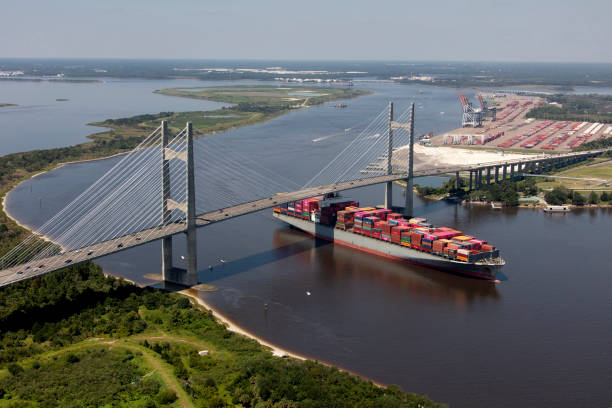Exploring the Freight Volumes and Types Moving Through JAXPORT
Jan 22, 2025 | ondemand_user

Jacksonville Port Authority (JAXPORT) is a vital gateway for freight moving in and out of the southeastern United States. With its strategic location, world-class facilities, and seamless connectivity, JAXPORT has become one of the busiest and most versatile ports in the country. Businesses across industries rely on this port to handle a diverse range of cargo efficiently and cost-effectively.
At On-Demand Warehousing and Fulfillment, we recognize the critical role that JAXPORT plays in facilitating commerce. Let’s take a closer look at the types of freight and the volumes passing through this dynamic hub.
Freight Volumes at JAXPORT
JAXPORT handles an impressive volume of freight each year. In recent years, the port has processed over 1 million TEUs (twenty-foot equivalent units) annually, reflecting its growing importance in global trade. Its success is fueled by several factors, including:
- Strategic Location: Positioned on the East Coast, JAXPORT offers proximity to major U.S. markets and efficient access to the Caribbean, Latin America, and Asia.
- Advanced Infrastructure: State-of-the-art terminals and deepwater channels support larger vessels and a higher throughput of cargo.
- Logistics Connectivity: With extensive rail and highway links, JAXPORT connects seamlessly to inland distribution networks.
The port’s continued growth underscores its role as a key driver of economic activity for the region and beyond.
Types of Freight Moving Through JAXPORT
JAXPORT’s versatility as a shipping hub lies in its ability to handle a wide variety of freight. The types of cargo regularly processed include:
- Containerized Freight:
- JAXPORT excels in handling containerized goods, ranging from electronics and apparel to consumer goods and machinery. These goods often travel via intermodal connections to destinations across the U.S.
- Automotive Cargo:
- Jacksonville is one of the nation’s largest ports for vehicle imports and exports. The port handles hundreds of thousands of cars, trucks, and other vehicles annually, making it a vital hub for the automotive industry.
- Breakbulk Cargo:
- JAXPORT supports breakbulk shipments such as oversized machinery, construction materials, and heavy equipment. Its specialized facilities and equipment make it a preferred port for these shipments.
- Liquid Bulk:
- Petroleum products, chemicals, and other liquid bulk cargo move through the port regularly. Dedicated storage tanks and pipelines ensure the efficient handling of these goods.
- Dry Bulk:
- Commodities like coal, cement, and grain are handled at JAXPORT’s facilities, ensuring the seamless movement of raw materials crucial to manufacturing and agriculture.
- Perishables and Refrigerated Cargo:
- JAXPORT is equipped to manage temperature-sensitive goods, including seafood, produce, and pharmaceuticals. Its refrigerated storage facilities ensure freshness and compliance with safety standards.
- Military Cargo:
- With its proximity to military installations, JAXPORT plays a key role in the movement of military equipment and supplies, supporting national security operations.
The Economic Impact of JAXPORT Freight
The freight volumes and diversity of cargo types moving through JAXPORT significantly contribute to the local and national economy. The port supports over 138,000 jobs in the region, generating billions of dollars in economic impact annually. For businesses, JAXPORT offers unparalleled opportunities to optimize their supply chains and reach global markets efficiently.
